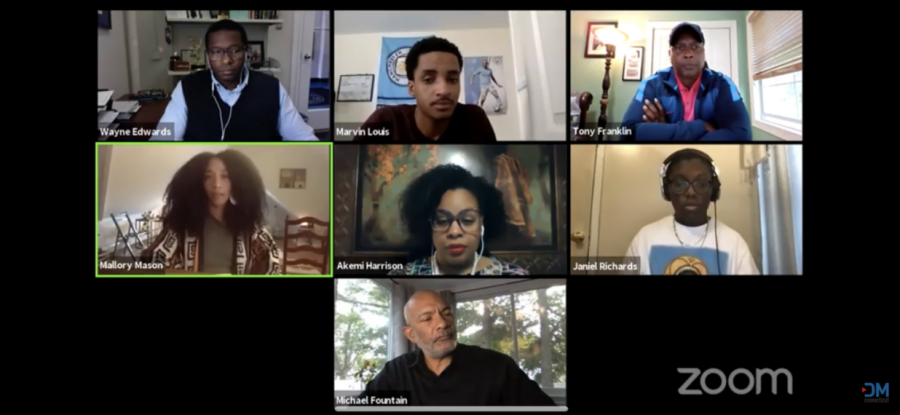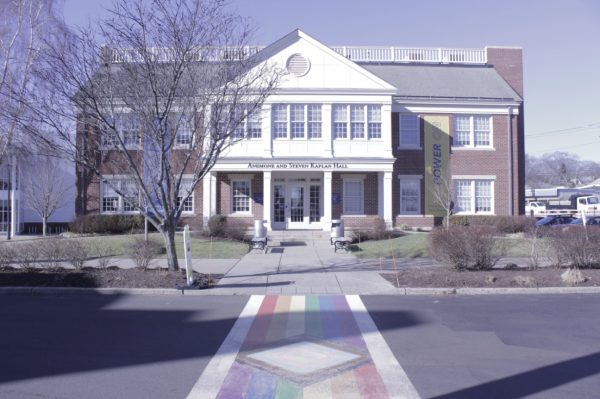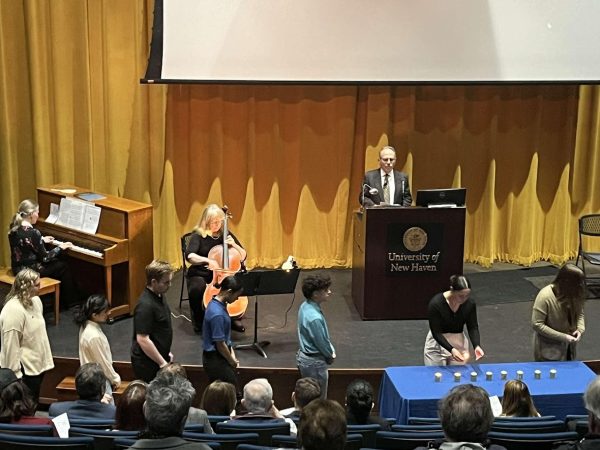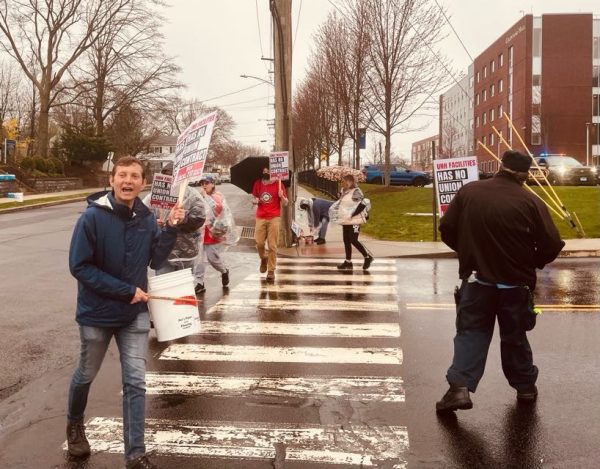Let’s Talk Media!: Discussion on Racial Consciousness
The recent revival in activism for the Black Lives Matter movement has sparked needed discussions on race and discrimination. University New Haven communications professor Wayne Edwards recently worked with Digital Media CT to host a discussion about racial consciousness in the media.
The discussion was held Sept. 15 on YouTube Live. The discussion took place as a Zoom recording with Edwards, Marvin Louis, Digital Media CT staff member, and a panel of communications workers including vice president at Xander, Tony Franklin; assistant news director at NBCUniversal Media, Akemi Harrison; freelance media producer, Mallory Mason; IBM’s visual designer, Janiel Richards, and senior coordinating producer at ESPN, Michael Fountain.
“The events of 2020 have certainly opened a greater awareness of social injustice and systemic racism that has occurred for centuries,” said the video caption. “Black citizens from all socioeconomic backgrounds have, at some point in their career, been the recipient of bias or worse in the workplace. This is no different in the media industry.”
The discussion focused on racism in the workplace. Members of the panel talked about the struggle to be recognized in their position.
Fountain shared his experience about presenting an idea in a meeting and not receiving the reaction he anticipated, only for a colleague to present a similar idea and to have it approved. Or, how he would be corrected in a harsh tone by his boss for making a mistake, but his coworker would make the same mistake and be corrected in a nicer tone. He talked about having to recognize bias in his industry and having to work against it.
“Believing in yourself is key,” said Fountain.
Franklin said the best solution was to push back against discriminatory behavior and addressing it directly with coworkers. When these situations happen, Franklin tells himself, “I am going to make sure you see me.”
He talked about how he was once pulled into his boss’s office for “advice,” but the advice was to talk and act like the supervisor. Eventually, Franklin realized that he didn’t have to change who he was and addressed that with his boss.
The panel also spoke about how they were taught that they would have to work harder than their white colleagues, and how it would be more difficult for them to be heard.
Richards said that on several occasions people at her office have assumed she was an office cleaner rather than their visual designer. She shared a story of how she would be washing her own dishes after her lunch break, and other workers at the office would put their dirty dishes in the sink and assume she was going to clean it for them.
“It’s interesting how we’re conditioned to go through life. My mom has always told me, even if someone disrespects you, hold your own and try to be respectful as much as possible,” said Richards.
Franklin said, “It doesn’t matter how many wins you have, as a Black executive I always have to prove myself.” With that, he shared his fear of how when white employees get fired, they can almost immediately find a new, similar job. As a Black employee, Franklin fears that if he ever got fired, he wouldn’t get that chance again.
Harrison shared a story of how she was starting at a new job and went to shake an employee’s hand but was dismissed. Or, how her team was covering a story on a graveyard by a name that included the N-word, and her white coworker continuously read the full word out loud. Harrison had to step up and say that their behavior was inappropriate.
“You may be the only person of color [in your workplace],” said Harrison, “and you have to be the voice for that community.”
Panel members talked about their experiences of being the only or only one of a few Black employees, which meant fewer opportunities to find mentors. Panel members said they always looked forward to mentoring interns or younger employees, that way they could help them navigate the challenges.
On the topic of being few Black employees, Harrison shared a story of how she was one of two Black women in her office, and how her colleagues would mistake their names frequently.
Mason talked about her experience, and how she encourages Black people to ask their colleagues to use their full name, unless they give permission otherwise. She talked about white fragility in the workplace and ways that it is projected. She said that while this is not always the case and a nickname may be given with good intentions, people should not be afraid to say how they want to be addressed by their colleagues.
“Make them say your full name…[shortening your name, or giving you a nickname] is a tactic they use to diminish you,” she said, “and I had to learn that . . . Have them address the way you want to be addressed.”
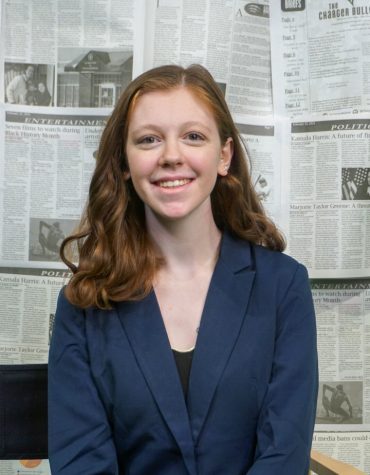
Beth Beaudry is a senior majoring in communication with a double concentration in journalism and public relations, and a minor in English. This is her...

